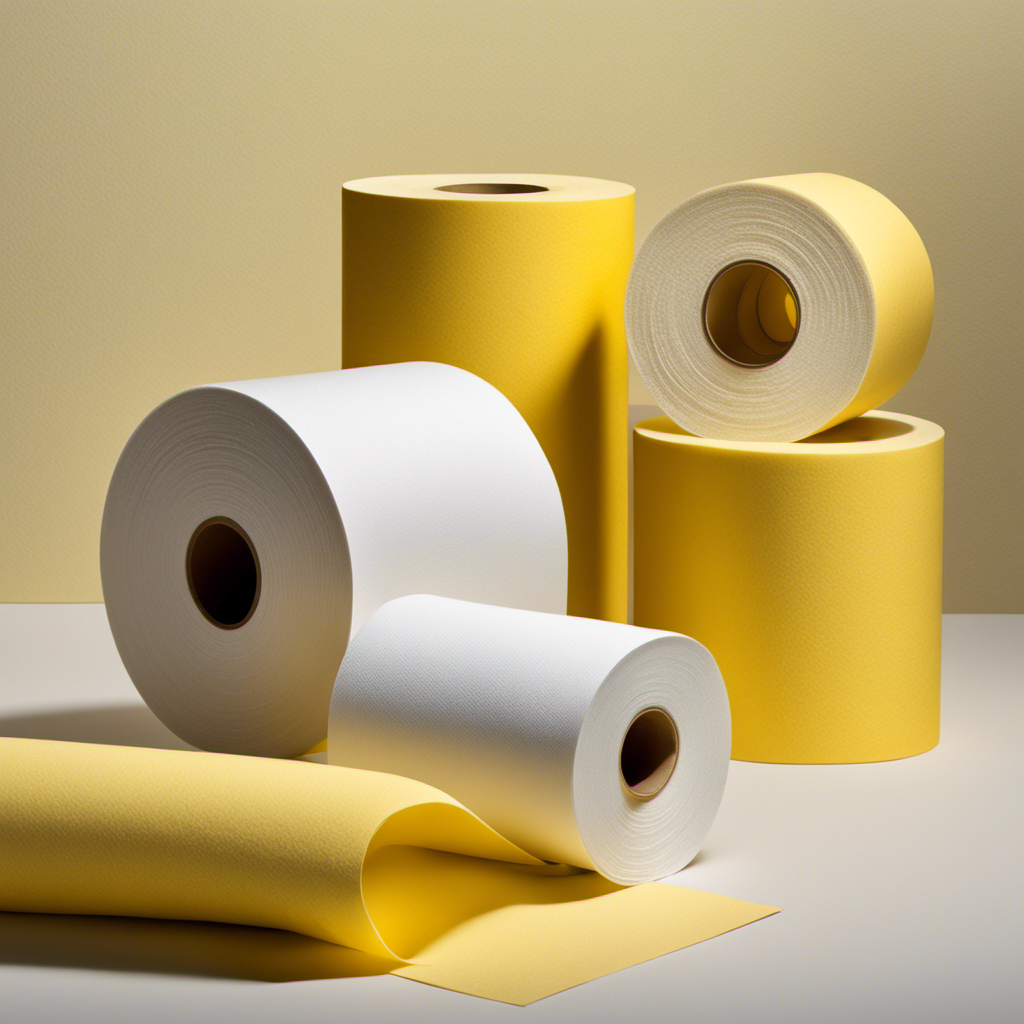Let’s dive into the murky world of flushable wipes. Are they really as flushable as they claim to be? It’s a question that has left many of us puzzled.
In this article, we’ll take an objective and evidence-based look at the definition of ‘flushable.’ We’ll uncover the problems with traditional flushable wipes and examine the impact they can have on plumbing systems.
Get ready to explore eco-friendly alternatives and learn how to properly dispose of wipes.
Key Takeaways
- Some wipes labeled as ‘flushable’ may not be safe to flush.
- Traditional flushable wipes don’t break down easily in water.
- Misleading labeling causes confusion among consumers.
- Proper disposal of wipes is crucial to prevent damage to sewer systems and minimize environmental consequences.
Understanding the Definition of ‘Flushable
We will now explore the criteria that determine whether or not wipes can be classified as ‘flushable’. Understanding the definition of ‘flushable’ is crucial in addressing the environmental concerns and consumer misconceptions surrounding these products.

Many consumers mistakenly believe that all wipes labeled as ‘flushable’ are safe to flush down the toilet without causing any harm. However, this isn’t always the case. The term ‘flushable’ refers to the ability of a wipe to pass through household plumbing systems and reach the wastewater treatment plants without causing blockages or other issues.
To be considered flushable, wipes must meet certain standards set by industry organizations, such as the International Water Services Flushability Group. These standards ensure that flushable wipes break down quickly, minimizing the risk of clogging pipes and causing environmental damage.
It’s important for consumers to understand the criteria that determine flushability to make informed decisions and prevent potential problems.
The Problem With Traditional Flushable Wipes
In our exploration of the definition of ‘flushable’, it’s important to address the problem with traditional flushable wipes. While these wipes are marketed as convenient and easy to dispose of, there are several environmental implications and consumer misconceptions associated with them.

Here are four key issues to consider:
- Clogging: Traditional flushable wipes don’t break down easily in water, leading to clogged pipes and sewage backups.
- Pollution: When flushed, these wipes can end up in rivers and oceans, contributing to water pollution and harming marine life.
- Misleading labeling: Many wipes labeled as ‘flushable’ don’t meet the industry’s guidelines for dispersibility, leading to confusion among consumers.
- Increased waste: The use of flushable wipes contributes to the overall waste problem, as they’re often used in addition to toilet paper, adding to landfill volumes.
These problems highlight the need for better regulation and consumer education to ensure that flushable wipes truly live up to their name.
Examining the Impact on Plumbing Systems
How do flushable wipes impact plumbing systems?
Flushable wipes may seem convenient, but they can have significant consequences for plumbing systems. These wipes are often marketed as being safe to flush, but in reality, they can cause clogs and blockages in pipes. This can lead to costly repairs and damage to the overall plumbing system. Regular maintenance is crucial for plumbing systems to prevent such issues. Neglecting maintenance can exacerbate the problem, as clogs can accumulate over time.
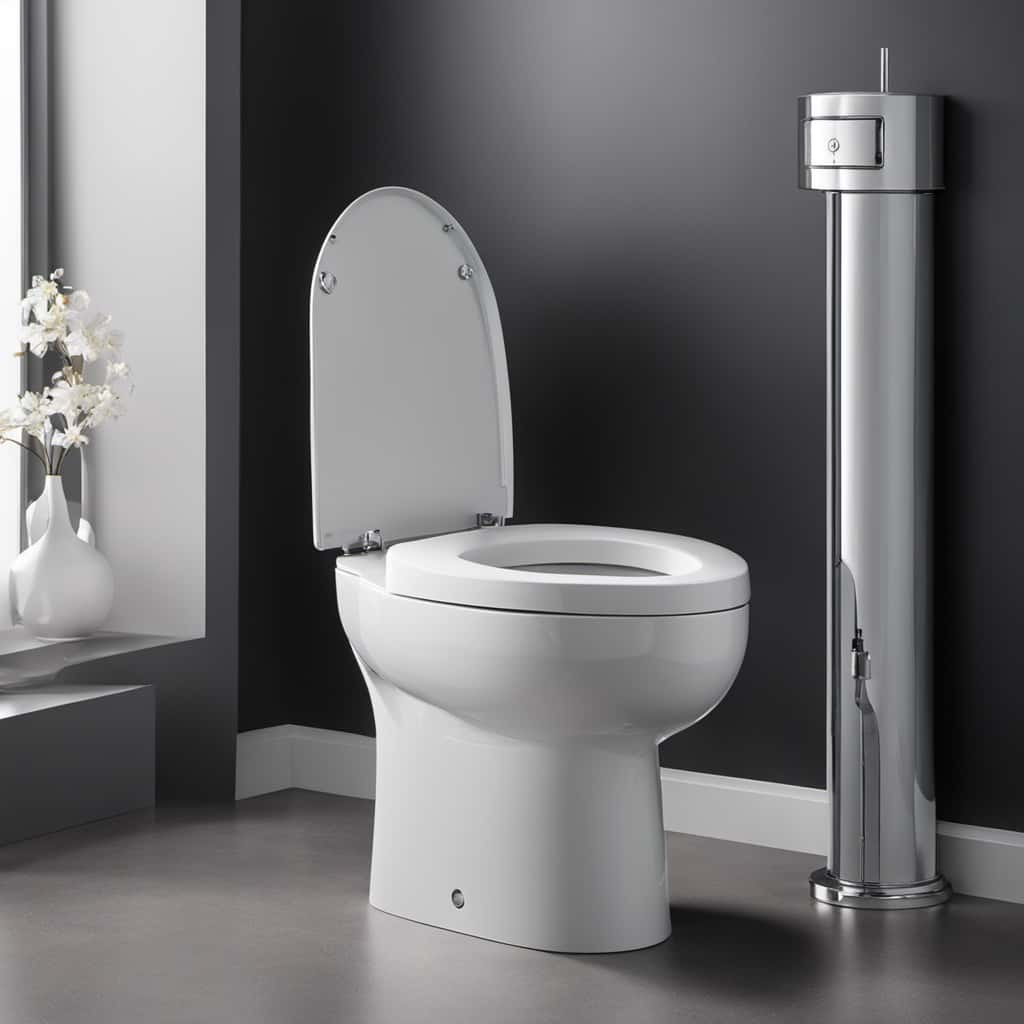
Additionally, the environmental consequences of using non-flushable wipes shouldn’t be overlooked. These wipes aren’t biodegradable and can contribute to pollution and harm aquatic ecosystems. Considering these factors, it’s important to explore eco-friendly alternatives to flushable wipes that are both effective and safe for plumbing systems.
Eco-Friendly Alternatives to Flushable Wipes
To explore eco-friendly alternatives to flushable wipes, let’s consider some effective and safe options for maintaining plumbing systems. When it comes to sustainable and biodegradable options, there are several alternatives to consider:
- Bamboo toilet paper: Made from renewable bamboo, this toilet paper is soft, strong, and breaks down easily in water.
- Washable cloth wipes: These reusable wipes can be washed and used again, reducing waste and the strain on plumbing systems.
- Bidets: Installing a bidet in your bathroom can help reduce the need for wipes altogether, as they provide a gentle and hygienic cleaning experience.
- Wet bags: If you prefer using wipes, consider using wet bags to dispose of them properly instead of flushing. These bags can be washed and reused, minimizing environmental impact.
By exploring these sustainable and biodegradable options, we can make a positive impact on our plumbing systems while also being mindful of the environment.
Now, let’s discuss how to properly dispose of wipes.
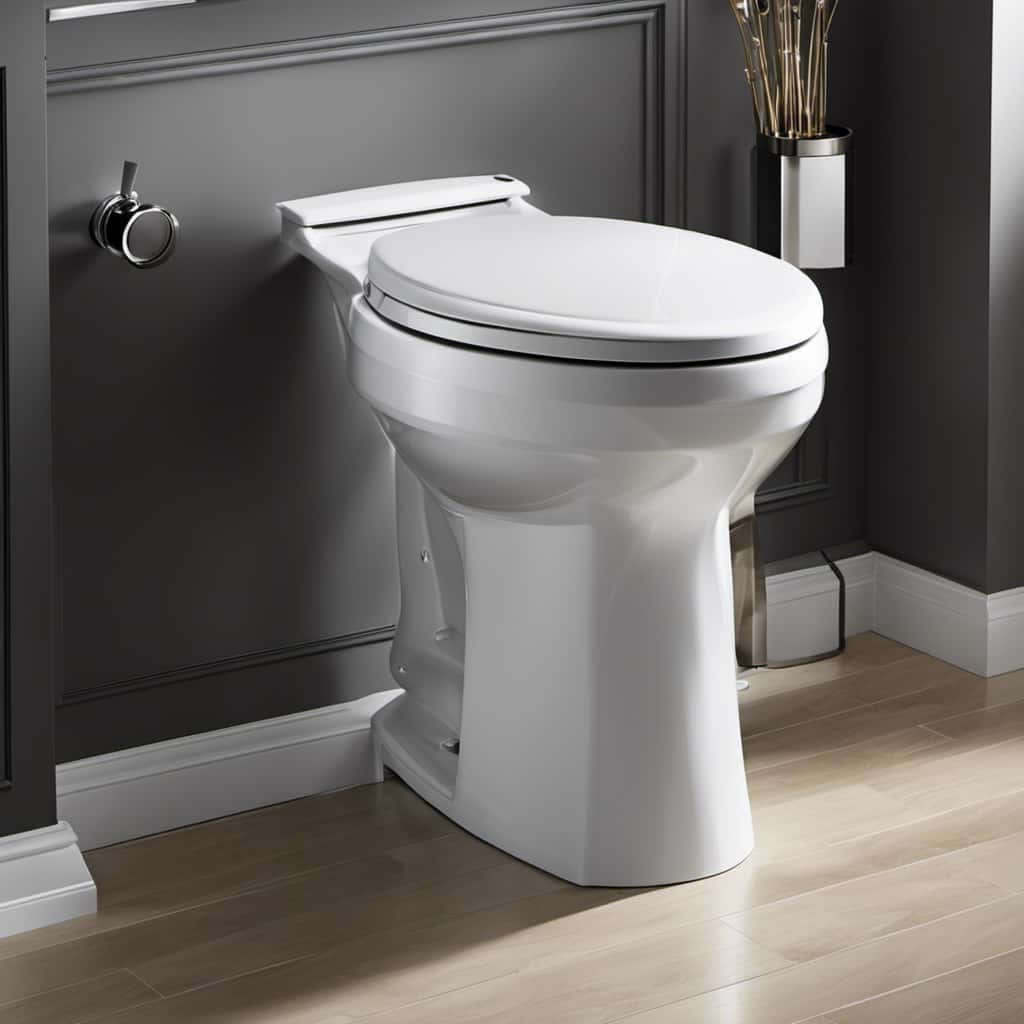
How to Properly Dispose of Wipes
To properly dispose of wipes, we can utilize designated trash bins, as they aren’t suitable for flushing. Improper disposal of wipes can have significant environmental consequences.
When flushed, wipes can clog pipes and cause blockages in sewer systems. This can lead to backups and overflows, resulting in costly repairs and potential contamination of water sources. Additionally, wipes that make their way into the ocean contribute to marine pollution, harming aquatic life and ecosystems.
Therefore, it’s crucial to follow proper disposal methods for wipes. After use, they should be placed in a trash bin that’s specifically designated for non-flushable items. This ensures that the wipes are disposed of in a way that minimizes their impact on the environment and prevents potential damage to sewer systems and waterways.
Frequently Asked Questions
What Are the Main Ingredients in Flushable Wipes?
Main ingredients in flushable wipes include water, a cleansing agent, and fibers. However, despite claims of being flushable, they can still cause environmental impact. Alternatives to flushable wipes, such as biodegradable wet wipes, are available.
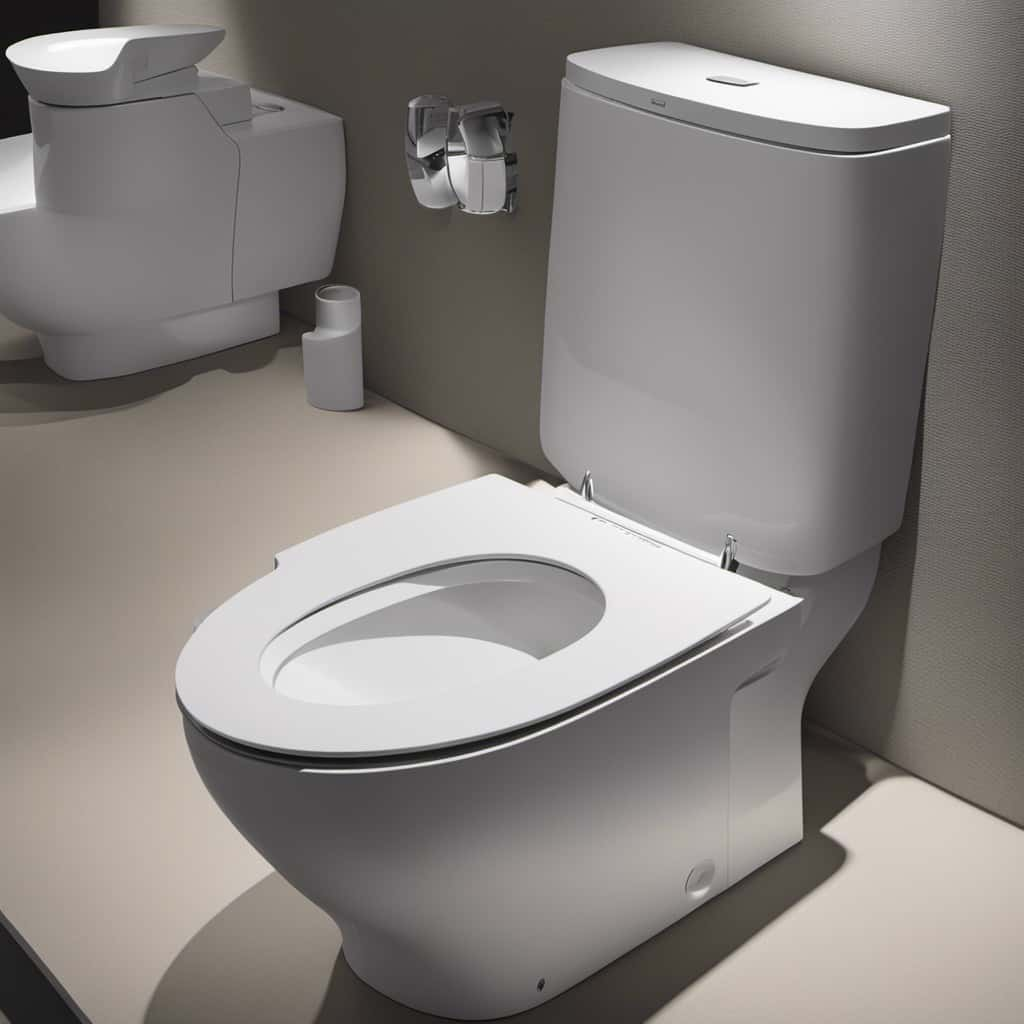
Are Flushable Wipes Safe to Use on Sensitive Skin?
When it comes to sensitive skin, we understand the concerns with using flushable wipes. There are alternatives available that are gentle and suitable for sensitive skin. Let’s explore those options together.
Can Flushable Wipes Be Used in Septic Systems?
Flushable wipes can cause significant environmental impact when used in septic systems. For septic system users, alternatives like biodegradable toilet paper or bidets are more sustainable options that won’t harm the system.
How Long Does It Take for Flushable Wipes to Break Down in Water?
Flushable wipes can take a long time to break down in water, impacting the environment. Alternatives to using them include using toilet paper or bidets. Stricter regulations should be considered to prevent sewage system clogging.
Are Flushable Wipes Biodegradable?
Flushable wipes are a popular convenience, but are they harmful to the environment and can they be recycled? We explore their biodegradability and alternatives that are more sustainable.
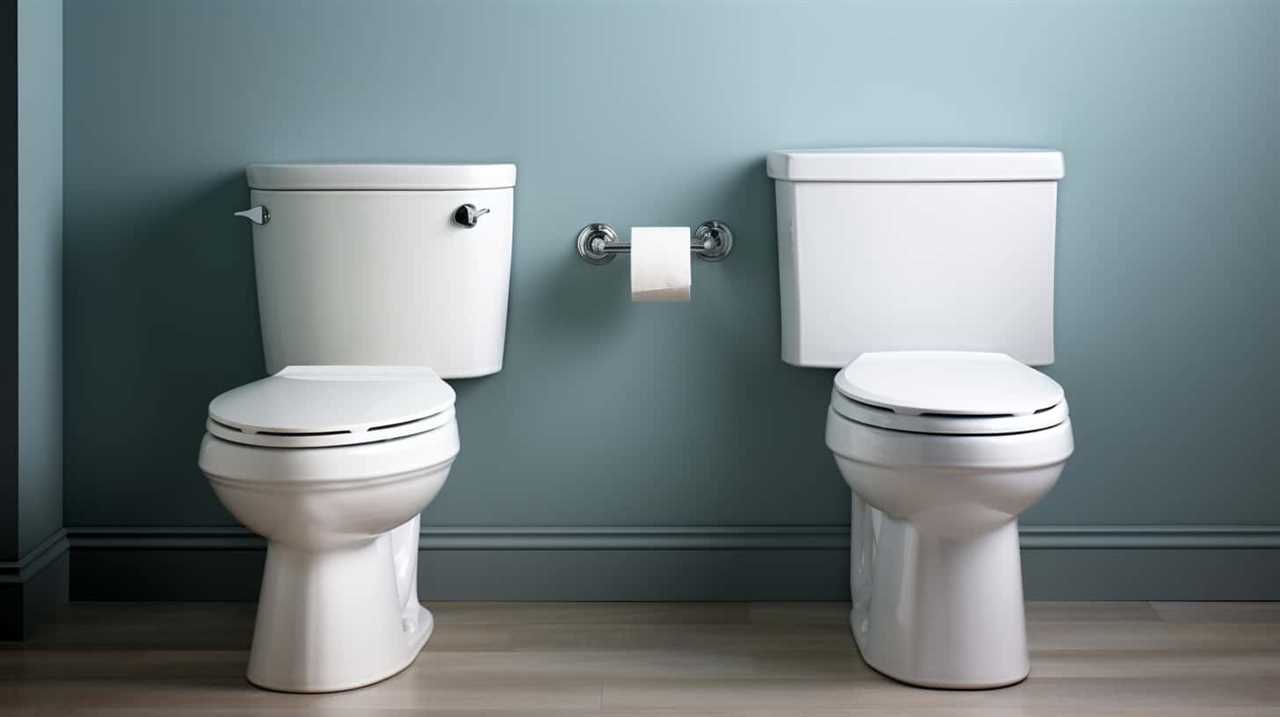
Conclusion
In conclusion, while many wipes claim to be flushable, the reality is that most of them can cause significant damage to plumbing systems. A study conducted by the Water Environment Federation found that wipes make up a significant percentage of sewer clogs. This is a clear indication that the term ‘flushable’ is misleading.
It’s crucial for consumers to understand the impact of these wipes and consider eco-friendly alternatives or proper disposal methods to protect our plumbing and the environment.





